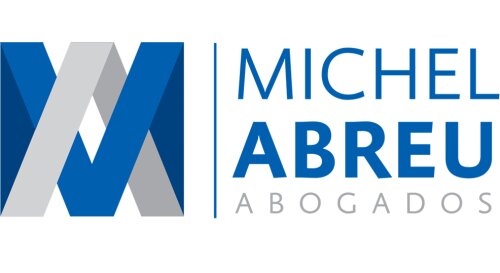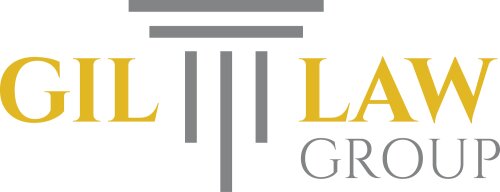Best Structured Finance Lawyers in Punta Cana
Share your needs with us, get contacted by law firms.
Free. Takes 2 min.
List of the best lawyers in Punta Cana, Dominican Republic
About Structured Finance Law in Punta Cana, Dominican Republic
Structured Finance refers to complex financial transactions that are designed to help organizations raise capital, transfer risk, or manage cash flows using non-traditional methods. In Punta Cana, one of the Dominican Republic’s leading tourism and investment destinations, structured finance often involves resort developments, real estate projects, hospitality investments, and infrastructure deals. These transactions can encompass asset-backed securities, project financing, syndicated loans, and securitizations. Local laws, banking regulations, and international investment treaties all play a role in shaping how structured finance is conducted in this region.
Why You May Need a Lawyer
Structured finance transactions entail complicated legal and financial arrangements that can expose parties to significant risks if not handled correctly. Here are common scenarios where legal advice is invaluable:
- Navigating cross-border real estate investments and resort developments
- Understanding the implications of asset-backed lending
- Drafting and reviewing loan documentation and security agreements
- Complying with local and international financial regulations
- Addressing due diligence requirements for foreign and local investors
- Structuring tax-advantageous deals in accordance with Dominican law
- Managing disputes related to loan defaults or restructuring debt arrangements
- Ensuring compliance for international investors under anti-money laundering (AML) laws
- Facilitating the syndication of loans for large developmental projects
Local Laws Overview
Structured finance in Punta Cana is governed by a mix of national and local legislation, including the Dominican Civil Code, financial regulations overseen by the Superintendencia de Bancos (Superintendency of Banks), and various specific statutes relating to investment, real estate, and tax matters. Key legal points to consider include:
- Foreign Investment Law (Law No. 16-95) encourages and protects foreign direct investment, relevant to structured finance transactions with international stakeholders.
- Banking and Financial Intermediation Law establishes the regulatory framework for financial institutions and lending activities.
- Real Estate and Tourism Incentive Laws, such as Confotur (Law 158-01), provide tax benefits and incentives for hospitality and tourism-related projects.
- Civil Code provisions outline security interests, collateral arrangements, and contract requirements.
- Anti-Money Laundering and Counter-Terrorist Financing regulations require thorough due diligence, particularly where cross-border funding is involved.
- Taxation laws are crucial in structuring finance to optimize for taxes without violating avoidance or evasion rules.
- Any syndicated loan or securitization may involve coordination with multiple government entities to ensure compliance.
Frequently Asked Questions
What types of projects typically use structured finance in Punta Cana?
Common projects include hotel and resort developments, large real estate constructions, infrastructure for tourism, and mixed-use developments combining hospitality, retail, and residential spaces.
Can foreign investors participate in structured finance deals?
Yes. The Dominican Republic welcomes foreign investors, and there are specific legal protections to support their participation in structured finance transactions in Punta Cana.
What legal entities are commonly used in structured finance deals?
Corporations, limited liability companies, and special purpose vehicles (SPVs) are most commonly used for structuring complex financial arrangements.
Are there specific tax incentives for structured finance in tourism or real estate?
Yes. Laws such as Confotur offer tax exemptions and other incentives for tourism-related investments, which can be structured through various financial arrangements.
How are secured interests in property perfected under Dominican law?
Secured interests, such as mortgages or pledges, must be formalized and registered in the appropriate public registry to be enforceable against third parties.
What regulations apply to syndicated loans in Punta Cana?
Syndicated loans must comply with local banking laws, and often require coordination with the Superintendency of Banks as well as compliance with anti-money laundering laws.
Is due diligence different for structured finance compared to standard financing?
Due diligence is typically more comprehensive in structured finance due to the complexity, volume, and cross-border nature of transactions, particularly for real estate and hospitality projects.
Can structured finance transactions be conducted in foreign currencies?
Yes, but parties should consider exchange rate risks, currency controls, and banking regulations affecting the remittance and repatriation of funds.
What happens if a borrower defaults on a structured finance agreement?
Remedies depend on the contractual terms and type of collateral provided. Lenders may enforce security interests through court processes, or restructure debt according to Dominican insolvency laws.
Do I need a law firm with local expertise?
Absolutely. Local legal expertise ensures compliance with Dominican regulations, maximizes investment protection, and minimizes risk in structured finance transactions.
Additional Resources
If you are involved in structured finance in Punta Cana, the following resources may be useful:
- Superintendencia de Bancos de la República Dominicana - oversees banks and financial institutions
- Centro de Exportación e Inversión de la República Dominicana (ProDominicana) - assists foreign investors
- Dirección General de Impuestos Internos (DGII) - national tax authority
- Confotur (Consejo de Fomento Turístico) - offers tourism investment incentives and guidance
- Association of Dominican Banks (ABA) - financial sector trade association
- Local bar associations and chambers of commerce in Punta Cana
Next Steps
If you are considering a structured finance transaction or have legal concerns in Punta Cana, follow these steps:
- Identify the nature and goals of your financing needs
- Gather all relevant documentation regarding the property, project, or asset involved
- Schedule a consultation with a reputable law firm or specialized legal advisor in Punta Cana
- Ask about their experience with structured finance, especially for cross-border or hospitality projects
- Discuss due diligence requirements and regulatory compliance steps
- Clarify fees, timelines, and expected outcomes before formalizing legal representation
- Consult government resources or business development organizations for additional information and support
Getting qualified legal assistance early ensures your structured finance transaction is secure, efficient, and protected under Dominican and international law.
Lawzana helps you find the best lawyers and law firms in Punta Cana through a curated and pre-screened list of qualified legal professionals. Our platform offers rankings and detailed profiles of attorneys and law firms, allowing you to compare based on practice areas, including Structured Finance, experience, and client feedback.
Each profile includes a description of the firm's areas of practice, client reviews, team members and partners, year of establishment, spoken languages, office locations, contact information, social media presence, and any published articles or resources. Most firms on our platform speak English and are experienced in both local and international legal matters.
Get a quote from top-rated law firms in Punta Cana, Dominican Republic — quickly, securely, and without unnecessary hassle.
Disclaimer:
The information provided on this page is for general informational purposes only and does not constitute legal advice. While we strive to ensure the accuracy and relevance of the content, legal information may change over time, and interpretations of the law can vary. You should always consult with a qualified legal professional for advice specific to your situation.
We disclaim all liability for actions taken or not taken based on the content of this page. If you believe any information is incorrect or outdated, please contact us, and we will review and update it where appropriate.










